Starting a transportation business with one truck requires careful planning, market research, and effective strategies. Understanding logistics, regulations, and customer needs will significantly contribute to your success in this competitive industry.

The transportation industry is a vital component of the global economy, serving as the backbone for moving goods and services efficiently. In recent years, e-commerce has significantly boosted the demand for transportation and logistics, creating numerous opportunities for startups. With a focus on customer satisfaction, timely deliveries, and cost-effective solutions, businesses in this sector can thrive. Starting with one truck allows entrepreneurs to enter the market with lower operational costs while establishing a reputation for reliability.
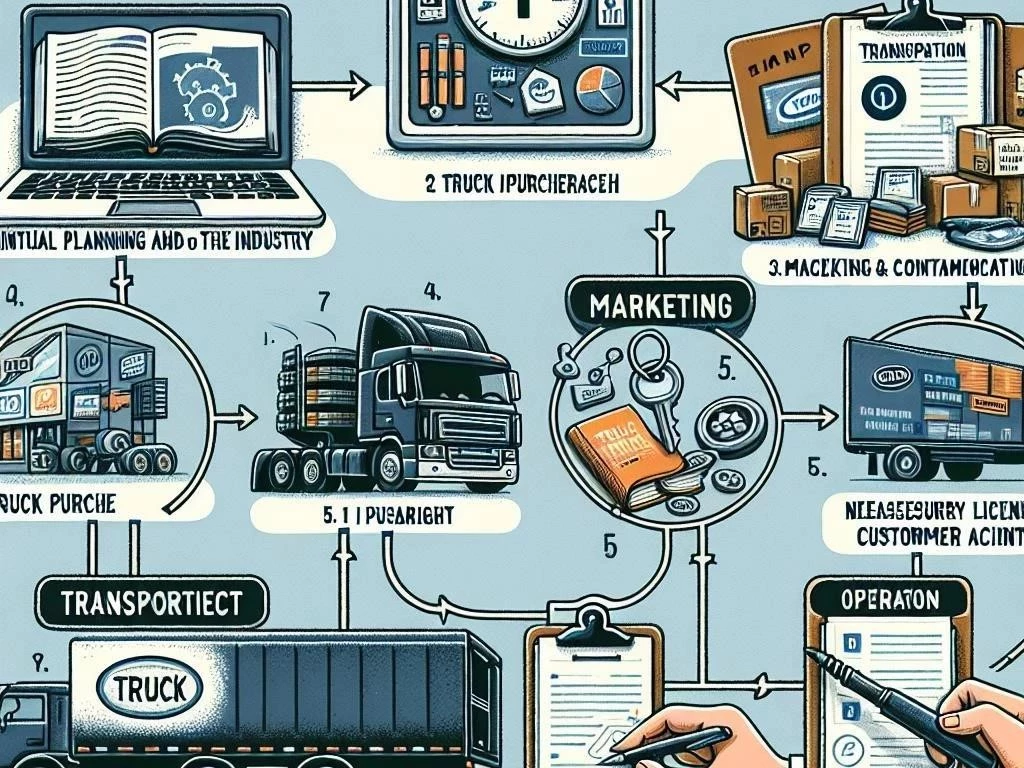
Understanding various aspects such as freight management, delivery services, and route optimization is essential for success. Additionally, awareness of local regulations, licensing requirements, and insurance needs will ensure compliance and operational efficiency. The transportation sector also relies heavily on technology integration, enabling better fleet management, tracking, and communication with clients. Entrepreneurs should consider niche markets to differentiate their services and enhance profit margins. By developing a robust business plan and leveraging networking opportunities, startups can effectively position themselves to capture a share of the growing transportation market.
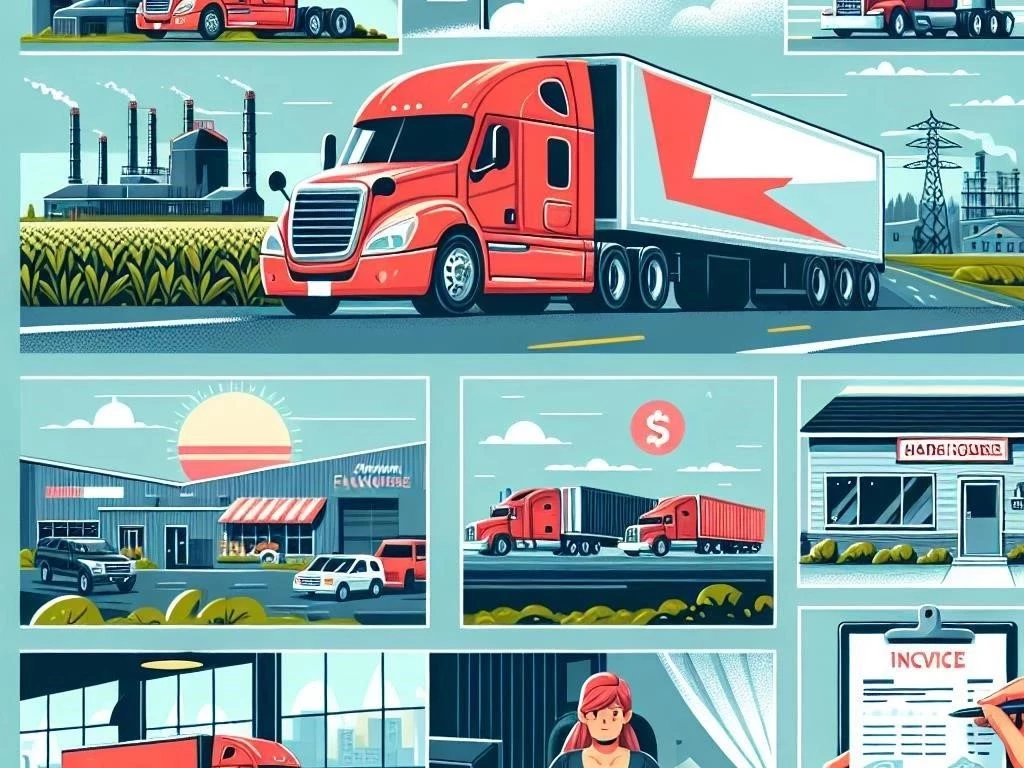
Creating a Business Plan
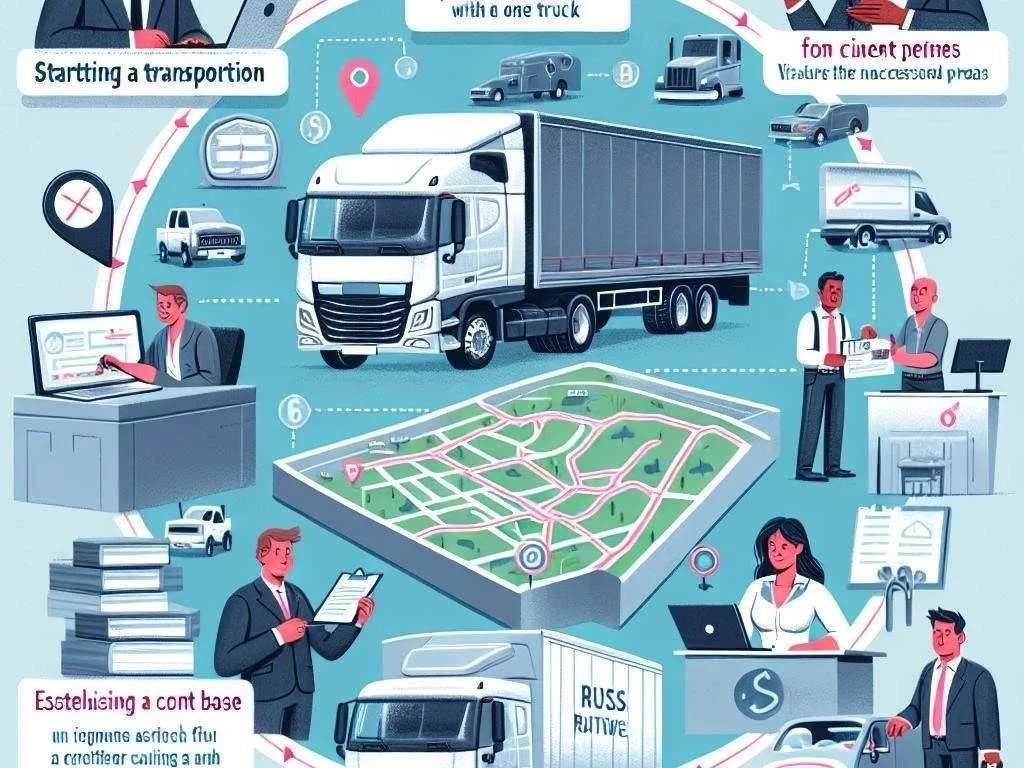
Creating a solid business plan is crucial for launching a successful transportation business with one truck. This plan should outline your mission, vision, and objectives, ensuring clarity in your direction. Start by conducting thorough market research to identify potential customer needs and preferences within your service area. Assess the local market and niche market opportunities to tailor your offerings accordingly.
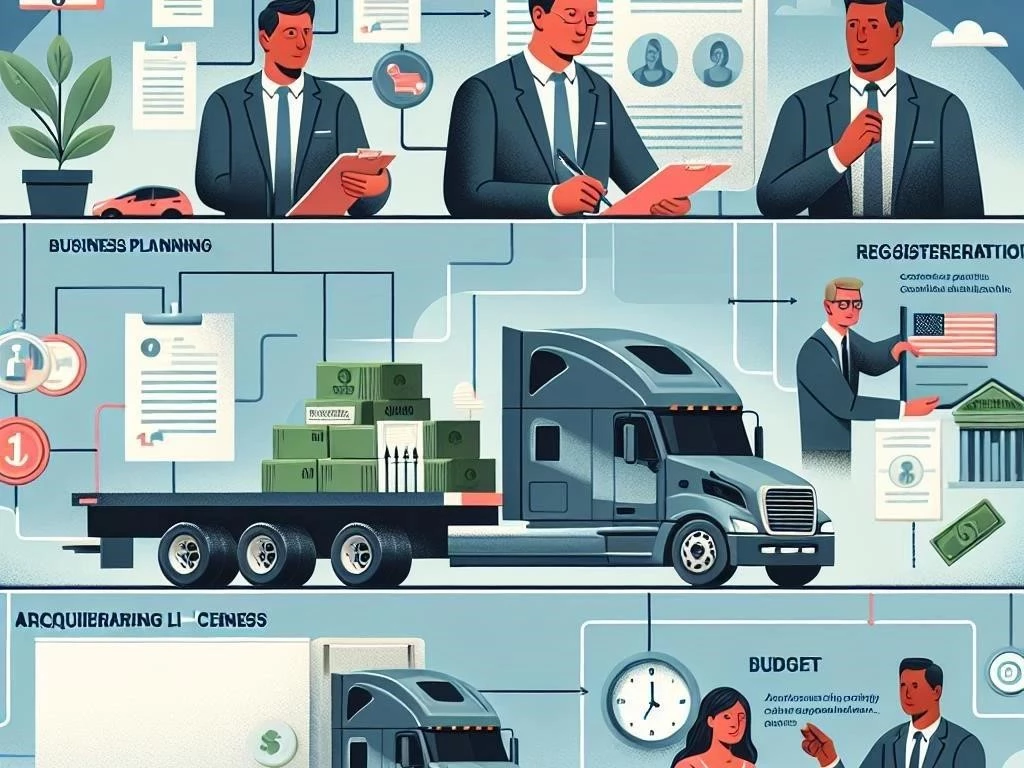
Incorporate a detailed analysis of operational costs, including vehicle acquisition, truck maintenance, insurance, and licensing. This will help you understand your financial requirements and set realistic pricing strategies. Establishing profit margins should be a priority, allowing you to remain competitive while ensuring sustainability. Additionally, define your marketing strategies to reach potential clients effectively. Networking with other industry professionals can enhance your credibility and open doors to new opportunities.

Lastly, include plans for future expansion, highlighting how you intend to scale your business as demand grows. A well-structured business plan will serve as a roadmap, guiding you through the challenges of starting and running your transportation venture.

Vehicle Acquisition
Acquiring the right vehicle is a fundamental step in starting your transportation business with one truck. The choice of vehicle will significantly impact your operational efficiency, service quality, and overall costs. Begin by assessing your specific transportation needs, considering factors such as cargo types, weight capacities, and typical delivery routes. This will help you identify the most suitable vehicle type for your operations.

When selecting a truck, evaluate both new and used options. New vehicles often come with warranties and lower maintenance costs, whereas used trucks can provide substantial savings. Ensure you investigate the vehicle’s history, including maintenance records and previous usage. Financing options should also be considered; explore loans, leasing, or outright purchases based on your budget and cash flow projections.
Additionally, factor in the costs associated with truck maintenance, fuel efficiency, and insurance. A well-maintained vehicle contributes to reliability and customer satisfaction. Ultimately, making informed decisions about vehicle acquisition is key to establishing a successful transportation business.
Truck Maintenance
Maintaining your truck is essential for the success and longevity of your transportation business. Regular truck maintenance not only ensures safety but also enhances reliability and efficiency. Develop a comprehensive maintenance schedule that includes routine inspections, oil changes, tire rotations, and brake checks. Adhering to this schedule can help prevent costly repairs and unscheduled downtimes.

Investing in quality parts and services is crucial to ensure that your truck remains in optimal condition. Keep detailed records of all maintenance activities for reference and to comply with industry regulations. This documentation can be beneficial for warranty claims and insurance purposes.
Additionally, familiarize yourself with common issues related to your specific truck model, allowing you to address problems proactively. Utilize technology for vehicle diagnostics and monitoring to streamline maintenance processes. Furthermore, understanding the impact of maintenance on operational costs can help you make informed decisions about your trucking operations. A commitment to truck maintenance ultimately supports your reputation and customer satisfaction, fostering long-term success in your transportation venture.

Route Planning

Effective route planning is a critical aspect of running a successful transportation business with one truck. It directly affects delivery times, fuel efficiency, and overall operational costs. Begin by analyzing your service area to identify common routes and potential delivery points. Consider factors such as traffic patterns, road conditions, and time constraints when determining the best routes.

Utilizing technology can greatly enhance your route planning efforts. GPS systems and route optimization software can help you create efficient delivery paths, minimizing travel time and fuel consumption. Additionally, regular updates on road conditions and construction can assist in adjusting routes as necessary.
Incorporate customer preferences and time-sensitive deliveries into your planning to ensure satisfaction. Establishing a process for reviewing and refining routes based on feedback and performance data is essential for continuous improvement. By mastering route planning, you can reduce operational costs, increase profit margins, and foster a reputation for reliability in your transportation business, ultimately leading to long-term success and growth.
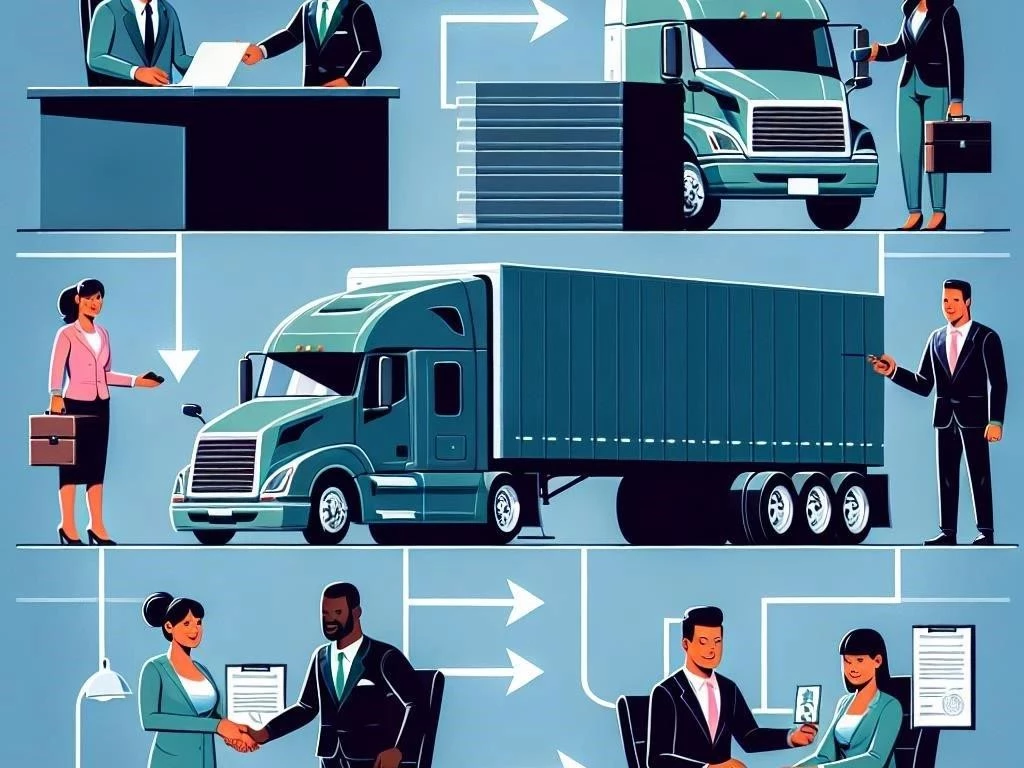
Understanding Regulations and Licensing
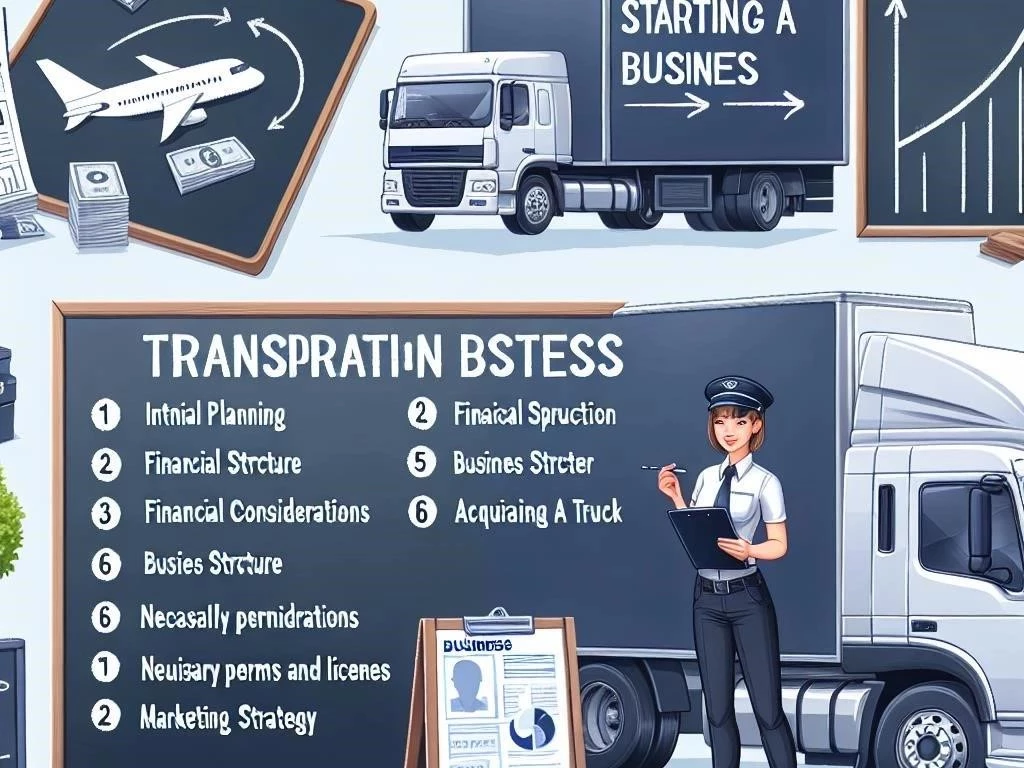
Understanding regulations and licensing is crucial when starting a transportation business with one truck. Compliance with local, state, and federal regulations ensures that your operations run smoothly and legally. Begin by researching the specific licenses required for your type of transportation service, which can vary based on cargo type and service area.
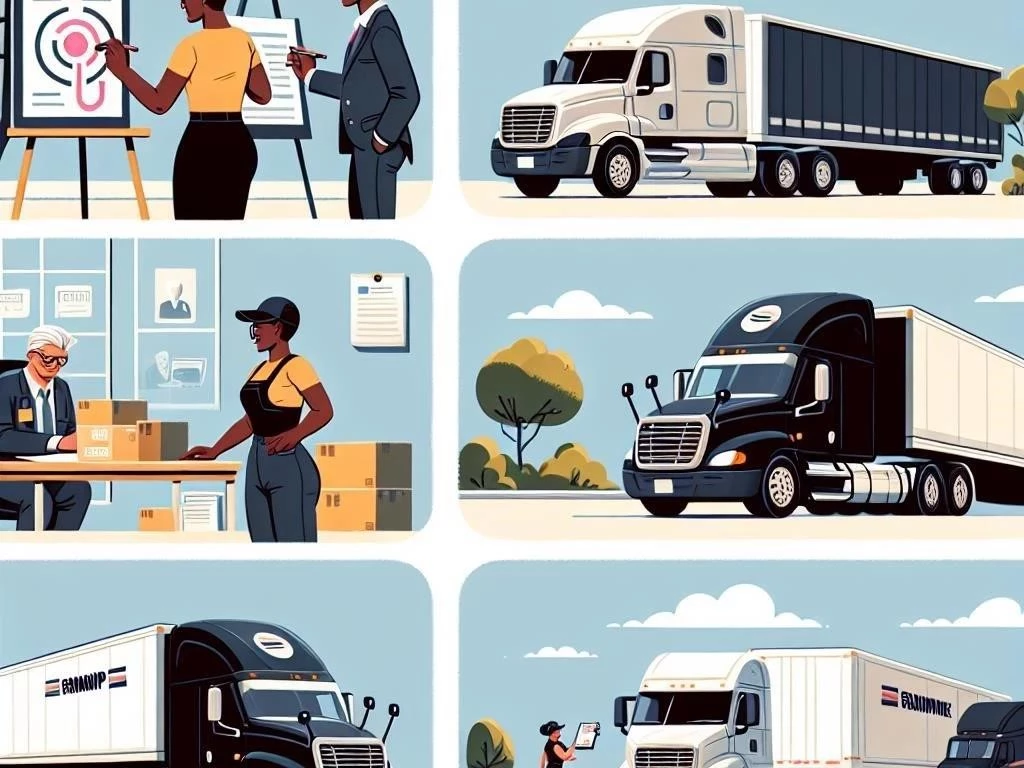
Common requirements include obtaining a Commercial Driver’s License (CDL) and registering your truck with the appropriate authorities. Additionally, securing necessary permits for freight transportation and ensuring compliance with safety regulations is vital. Familiarize yourself with the Department of Transportation (DOT) regulations, as well as any local zoning laws that may impact your operations.
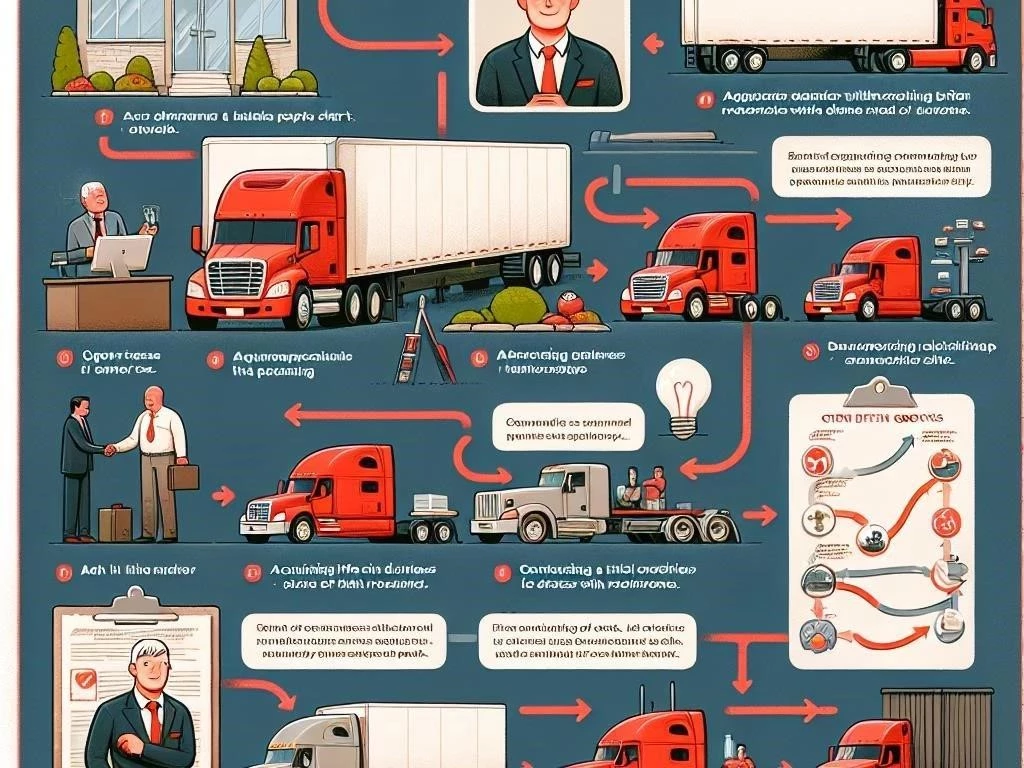
Insurance is another critical aspect, as it protects your business from liability and unforeseen circumstances. Assess the insurance requirements for your specific transportation niche, ensuring adequate coverage for your vehicle and cargo. Staying informed about changes in regulations is essential for ongoing compliance, so regularly review industry news and resources. Ultimately, understanding these aspects will contribute to your business’s legitimacy and operational success.
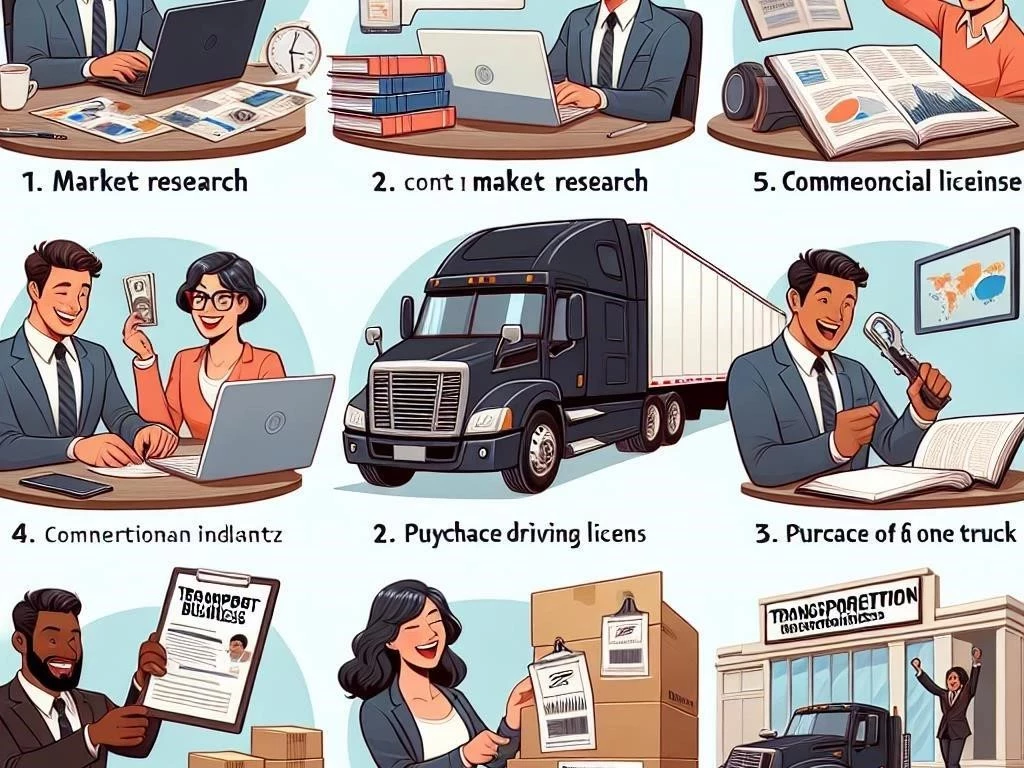
Insurance Requirements
Securing the appropriate insurance is a vital step when starting your transportation business with one truck. Insurance protects your investment, provides financial security, and ensures compliance with legal requirements. Begin by determining the types of coverage necessary for your operations, including liability, cargo, and physical damage insurance. Liability insurance is essential, as it covers bodily injury and property damage resulting from accidents involving your truck.
Cargo insurance protects the goods you transport, safeguarding against loss or damage during transit. Physical damage insurance covers repairs to your truck in case of accidents, theft, or vandalism. Understanding the minimum insurance requirements mandated by local and federal regulations is essential for compliance. Additionally, consider your specific business needs and risks when evaluating coverage options.

Shopping around for quotes from multiple providers can help you find competitive rates. Regularly reviewing and updating your insurance policy will ensure that it remains aligned with your business’s growth and evolving needs. By prioritizing insurance requirements, you can operate your transportation business with peace of mind and security.

Managing Operational Costs
Managing operational costs is a crucial aspect of running a successful transportation business with one truck. Keeping expenses in check will directly impact your profit margins and overall financial health. Start by meticulously tracking all costs associated with your operations, including fuel, maintenance, insurance, licensing, and driver wages. This will provide a clear picture of your financial landscape and help you identify areas for potential savings.
Fuel efficiency is a significant cost driver, so invest in strategies to optimize fuel consumption. Regular vehicle maintenance can prevent costly repairs and extend the lifespan of your truck. Implementing route optimization can also reduce fuel costs and improve delivery times, contributing to increased profitability.
Consider negotiating contracts with suppliers and service providers to secure better rates on services and products essential for your operations. Additionally, utilizing technology to monitor expenses and manage budgets can enhance your financial oversight. By proactively managing operational costs, you can create a sustainable transportation business that adapts to market demands and fosters long-term success.
Customer Service Excellence
Customer service excellence is a cornerstone of success for any transportation business, especially when starting with one truck. Building strong relationships with clients fosters loyalty and encourages repeat business. Begin by prioritizing clear communication; inform customers about delivery schedules, potential delays, and any changes in services. This transparency builds trust and ensures customer satisfaction.
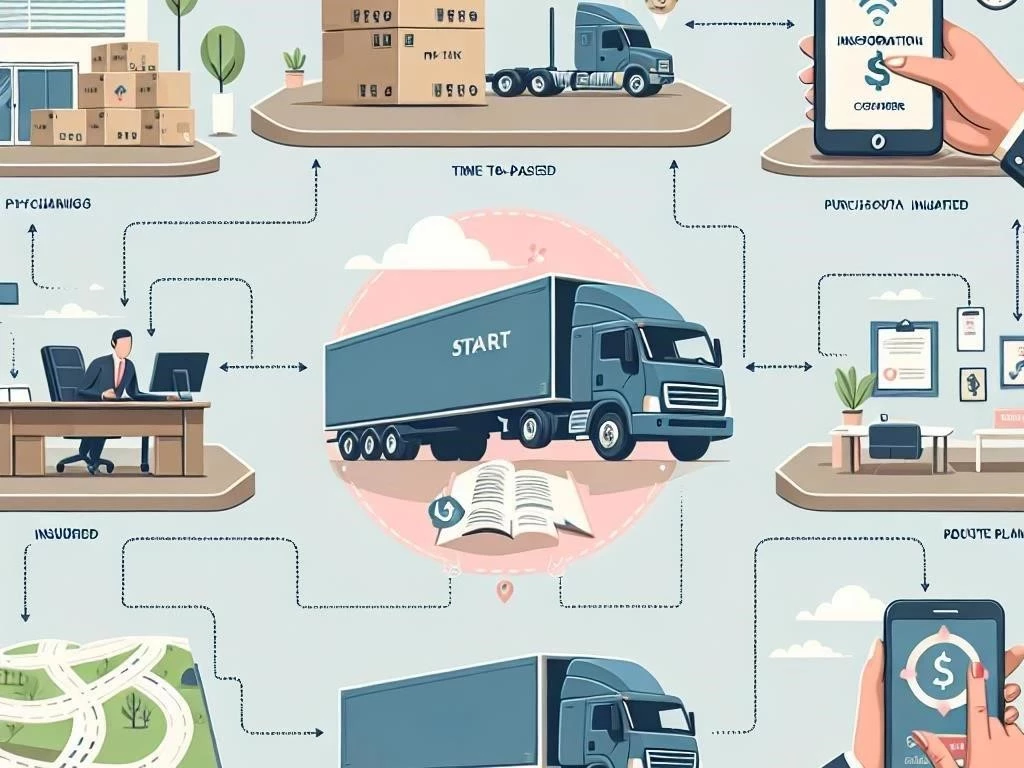
Responding promptly to inquiries and addressing concerns is vital for maintaining a positive reputation. Consider utilizing various communication channels, such as phone, email, and social media, to enhance accessibility. Implementing a feedback system enables you to gather customer insights and make necessary improvements to your services.
Delivering on promises is essential; ensure that deliveries are made on time and in excellent condition. Providing a consistent and reliable service will distinguish your business from competitors. Additionally, consider offering personalized services or loyalty programs to enhance customer experience; By focusing on customer service excellence, your transportation business will not only attract new clients but also retain existing ones, ultimately contributing to long-term growth and profitability.
Marketing Strategies for Your Transportation Business
Developing effective marketing strategies is essential for promoting your transportation business and attracting customers. Start by identifying your target audience and understanding their needs within the local and niche markets. Tailor your marketing efforts to address these needs, emphasizing reliability, efficiency, and customer service.
Utilize online platforms to enhance your visibility; create a professional website showcasing your services, testimonials, and contact information. Leverage social media to engage with potential clients, share updates, and highlight successful deliveries. Implement search engine optimization (SEO) techniques to improve your online presence and attract organic traffic.
Networking is also crucial; build relationships with local businesses and industry professionals. Attend trade shows and community events to showcase your services and establish connections. Consider offering promotions or referral incentives to encourage word-of-mouth marketing. Additionally, invest in targeted advertising, both online and offline, to reach your desired audience effectively. By employing diverse marketing strategies, you can create brand awareness and drive growth for your transportation business.
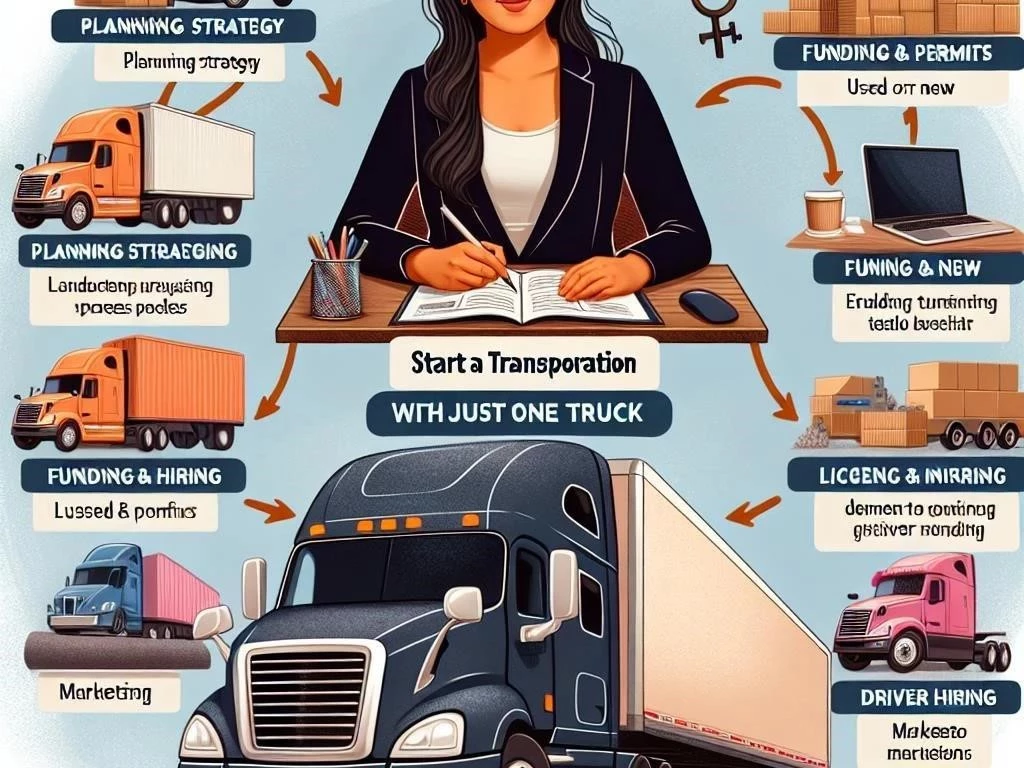
Networking and Building Relationships
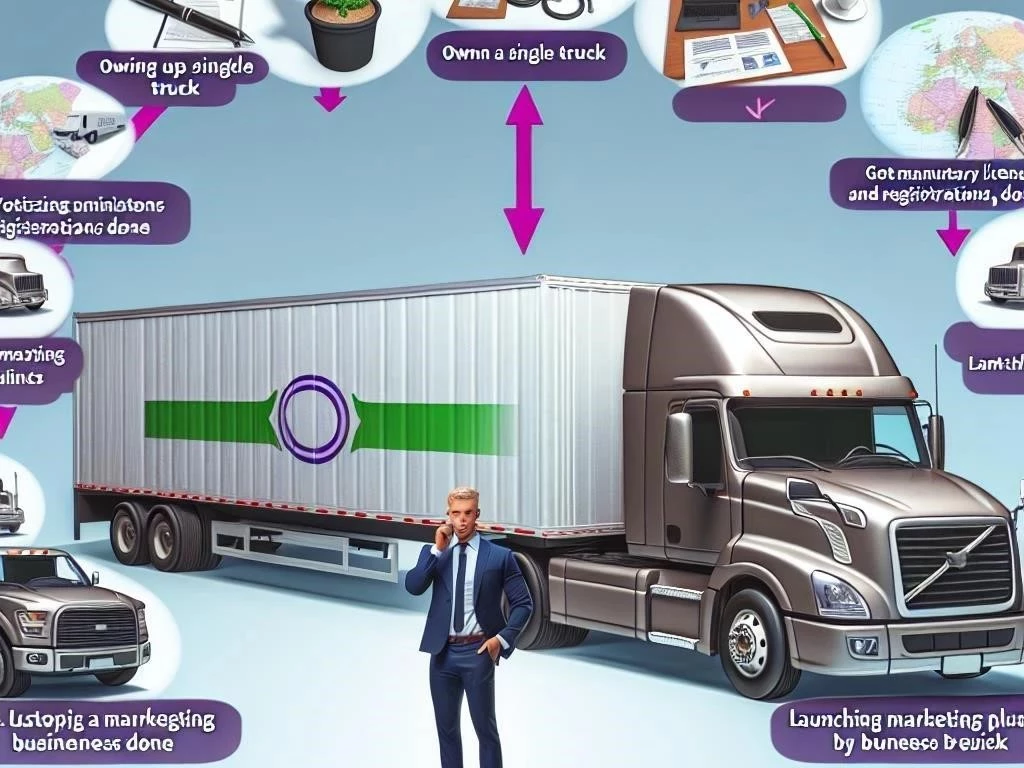
Networking and building relationships are essential components of establishing a successful transportation business with one truck. Strong connections can lead to new opportunities, partnerships, and valuable insights within the industry. Start by attending local business events, trade shows, and industry conferences to meet potential clients, suppliers, and other professionals. Engaging in conversations and sharing your expertise will help you establish credibility and trust.
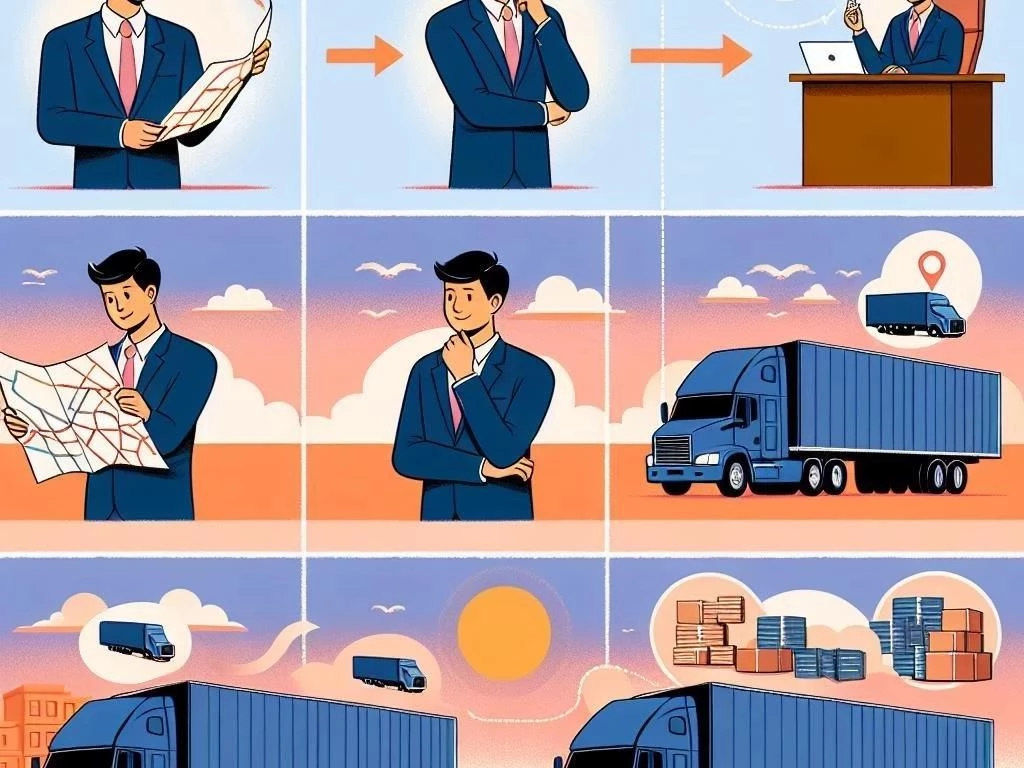
Joining industry associations and online forums can provide you with additional networking opportunities. Participate actively in discussions and offer assistance to others in the community. This can enhance your visibility and increase your chances of receiving referrals. Consider collaborating with other transportation businesses or local enterprises to expand your service offerings and reach a wider audience.

Utilize social media platforms to connect with industry peers and showcase your services. Regularly update your contacts on your business’s progress and achievements, maintaining open lines of communication. By prioritizing networking and relationship-building, you can create a supportive network that fosters growth and success for your transportation business.
Planning for Expansion and Sustainability
Planning for expansion and sustainability is crucial for the long-term success of your transportation business with one truck. Start by setting clear growth objectives and milestones that align with your overall business plan. Evaluate market trends and identify opportunities for expansion, such as diversifying your services or increasing your service area. Understanding your local market dynamics and customer demands will guide your expansion strategy effectively.
Implementing sustainable practices can enhance your business’s reputation and efficiency. Consider investing in fuel-efficient vehicles and exploring alternative energy options to reduce your environmental impact. Additionally, streamline your operations to minimize waste and lower operational costs. Technology integration can also play a significant role in promoting sustainability; utilize software for route optimization and fleet management to enhance efficiency.

Regularly assess your business model to ensure it remains adaptable to changing market conditions. This flexibility is essential for long-term growth. By prioritizing expansion and sustainability, you can position your transportation business to thrive in a competitive landscape while meeting the evolving needs of your customers.
